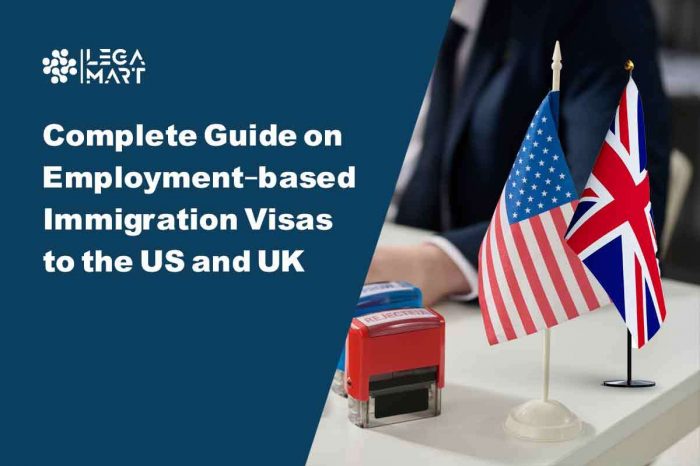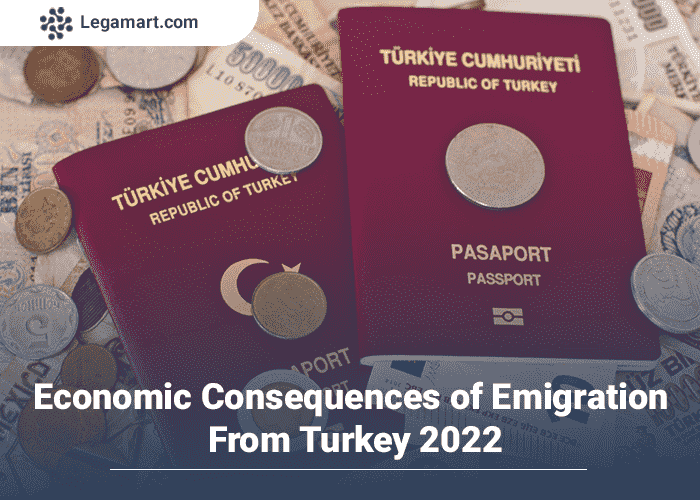Investment and business immigration
Investment and business immigration involves using one’s capital or skills to create jobs in the host country. This type of immigration requires adherence to complex legal procedures like fulfilling investment criteria, business registration or ownership requirements. International legal issues may arise in the form of differing rules and regulations across jurisdictions, which might lead to disputes over legal jurisdiction in case the investment or business rules are breached. Moreover, legal challenges can arise if such action is perceived as a threat to the domestic job market, leading to potential backlash from local governments or communities.
Find best lawyers for Investment and business immigration
Issues related to Investment and business immigration
- Investment visas – This visa usually requires an investor to make a particular monetary investment in a new or existing business in the country.
- Business visas – This visa usually allows individuals to start or run a business in the country, but there may be restrictions on the type of businesses eligible.
- Self-employment visas – This visa usually allows individuals to be self-employed in their own business within the country.
- Entrepreneur visas – This type of visa is similar to the
Immigration to the US
To immigrate to the United States, you’ll need to figure out which type of green card you’re eligible for. You’ll likely only be able to immigrate if you qualify for one of the following.
-
Types of US visas
-
Family-based green cards
-
Employment-based green cards
-
Humanitarian green cards
-
Humanitarian green cards
-
Diversity lottery green cards
-
Longtime-resident green cards
-
Other green cards
Types of US visas
- Family-based green cards
- Employment-based green cards
- Humanitarian green cards
- Diversity lottery green cards
- Longtime-resident green cards
- Other green cards
Family-based green cards
Most green cards are issued to the family members of current U.S. citizens and green card holders. Eligible family members include spouses, widows/widowers, children, parents, and siblings. However, the rules vary depending on whether the sponsor is a U.S. citizen or a green card holder and how closely related the immigrant is to the sponsor.
Employment-based green cards
Many immigrants come to the United States using employment-based green cards, which are issued in five categories based on the skills or other benefits you bring to the country.
The first four categories — EB-1, EB-2, EB-3, and EB-4 — focus on your employee skills. In some cases, you’ll need a U.S. employer to sponsor your application; in others, you’ll have to demonstrate extraordinary abilities or specialised training.
The EB-5 green card is a little different: it’s issued to investors who spend between $500,000 and $1 million creating jobs in American communities. But the details vary depending on your home country, so seek legal and financial advice if it’s a route you want to explore.
An employment-based green card shouldn’t be confused with a work permit (officially called an “Employment Authorization Document”), a separate document granting marriage-based green card applicants the right to work in the United States.
Humanitarian green cards
Green cards are sometimes issued to refugees, asylees, and victims of human trafficking, abuse, and crime. However, getting a visa as a member of one of these groups can be complicated, so speak to a lawyer if you think you might be eligible.
Humanitarian green cards
Green cards are sometimes issued to refugees, asylees, and victims of human trafficking, abuse, and crime. However, getting a visa as a member of one of these groups can be complicated, so speak to a lawyer if you think you might be eligible.
Diversity lottery green cards
The United States runs a “green card lottery” that randomly awards immigrant visas to up to 50,000 people yearly. Only applicants from countries with low rates of immigration to the United States are eligible to apply.
Longtime-resident green cards
Green cards can be issued to individuals who have physically lived in the United States, either lawfully or unlawfully, since January 1, 1972. In addition, they must have entered the United States before that date and not left it since arriving.
Other green cards
The U.S. government issues many other green cards, including ones for “special immigrants” such as media professionals, religious workers, Afghanistan and Iraq nationals who have assisted the U.S. government, and employees of international organisations. In some situations, green cards are also available to Cuban citizens and American Indians born in Canada.
Immigration to Australia
If you want to go to Australia, you should take specific steps; you don’t just pack a bag, fly there, and plan on staying!
You need to immigrate to Australia formally. This starts with having a good reason for living in Australia, such as work or study. Next, you must apply for an Australian visa to support your reason. And understanding the cost of living and the culture will help you decide if Australia is a great place to live.
There are three ways to become an Australian citizen:
First, by birth: If you are born here, and one or both of your parents are Australian citizens or permanent residents of Australia.
By descent: If you are the child of an Australian citizen but are born overseas, you will generally be granted Australian citizenship.
By Grant: If you are a non-citizen of Australia, you can apply to become an Australian citizen.
How long is the whole process?
It usually takes 2-3 months for an application to be processed. However, it may go as far as six months on rare occasions.
Can I apply by myself?
You had better let a professional handle your case. Investment applications are challenging and complex to handle.

Immigration to Canada
Countless people from all around the world emigrate from their countries to Canada. Canadians are famous for their hospitality toward immigrants, and the country is known for its attractive opportunities. Canada offers a simple procedure for residential permits and citizenship.
This process can take several months or even a few years. Canada also allows dual citizenship.
The following are some of the best ways to immigrate to Canada:
The express entry program is the easiest and most common way to enter Canada. In this points-based program, you will be measured based on your language proficiency, competence, and experience in your respective field of work. The express entry program often takes six months to process. If you have a job offer from an employer in Canada, you can enter the country on an employer-specific work permit. If you have a Canadian citizen relative, they can sponsor you to Canada. Family members eligible for this program are parents, spouses, and dependent children. Suppose you have been physically present in Canada for 1,095 days of the last five years and have become a permanent resident. In that case, you can apply for naturalisation (the legal process which allows a non-native to become a citizen in a foreign country). This could provide you with Canadian citizenship. If you are 14 to 64 years old, you must send documents to prove that you can speak and understand French or English. Following this, you must pass a citizenship test, which is a total of 24 pts. You will not be eligible if you are not within this age range.
How much money do I need to bring to Canada for immigration?
Depending on the number of people in your family, the costs vary. It starts from CA$13,300 for one person, CA$16,500 for two, and CA$24,500 for four.
Can I move to Canada without a job?
Yes, you can. Your best bet would be the express entry program.
Which province in Canada needs more immigrants?
Newfoundland and Labrador need more immigrants to deal with the problem of having an old population.

Immigration to Germany
Germany has been deemed as the fifth most favourable country to move to. This favorability is due to its well-performing economy, education system, and employment opportunities. People from all over the world want a chance to move to Germany. This article will focus on information about how to move to Germany and general immigration to Germany.
To immigrate to Germany, you will need a valid reason. There are several ways foreign nationals can move to Germany, and they include the following reasons, which will be explained in more detail below.
German immigration for employment, German immigration for education, German immigration for entrepreneurs, German immigration for family reunions, and German immigration residence permits.
General Requirements to Immigrate to Germany
Even though there are many ways to immigrate to Germany, and each has some specific requirements, there are still similarities between them. To be eligible to move to Germany, you must fulfil the following criteria:
Prove Financial Stability
Each immigration purpose has a financial threshold that applicants must fulfil, but regardless of intent, applicants must prove that they can finance themselves in Germany. Even if you are working in Germany, you must have the initial funds to cover your expenses until you get your salary.
Have Health Insurance
You will not be able to immigrate to Germany without proper health insurance coverage. The recommended way is to get German health insurance since you cannot be sure whether German authorities will accept foreign health insurance. Find more information about health insurance for Freelancers, Employees, and Expatriates in Germany.
Have at Least Basic Proficiency in German
To be able to live in Germany, you will need to know German. The Common European Framework of Reference for Languages has three levels of language proficiency, A, B, and C. Each one has two parts. Language proficiency is divided into A1/A2 or primary, B1/B2 or proficient in the language, and C1/C2 or advanced language skills. To immigrate to Germany, you must enter the exams and pass them up to either A1 or B1. You need a higher C1 or C2 proficiency if you want permanent residence.

Immigration to Portugal
Since Portugal is part of the European Union, Portugal immigration depends on your nationality, the purpose of your stay, and the length of time in Portugal.
Naturally, the visa holder of a European passport or EEA/Swiss nationals can quickly enter Portugal by showing their identity cards. While European citizens can freely move to Portugal, they must request a registration certificate if they intend to stay longer than three months. European citizens can also obtain a permanent residence certificate after five years of living in Portugal.
All other foreign nationals classified as ‘non-EU’ will need some form of a visa (unless their country has a special agreement with Portugal). Portuguese visas are processed by the Portuguese embassy or consulate in your country of residence, while the Portuguese Immigration Office, SEF, is responsible for issuing Portuguese resident permits.
Non-European citizens
The United States, Canada, Australia, and New Zealand have international agreements with Portugal, meaning nationals can enter and stay in Portugal for 90 days within six months without needing a visa.
Non-EU/EFTA nationals who want to stay longer than three months must apply for a long-term or Portuguese residency visa before arriving. This gives them an extra opportunity to apply for a Portuguese residence permit after arrival.
People who fit into this category include:
- Self-employed individuals or workers
- Students
- Passive income earners
- Retiree
- Family members
Portugal immigration – visa types
Portugal visa requirements depend on your situation. Below we list the available visas on offer, including who they pertain to.
Schengen short-stay visa
The Schengen short-stay visa is perfect for those who got the travel to Portugal bug but who also want to move around freely within Europe’s Schengen zone. The visa is valid for 90 days out of six months.
There are several types of Schengen visas to know about:
Airport transit visa (Visa A) – permits transit within the international area of an airport, from one flight to another. This visa is required for all passengers that change flights in a Schengen country airport unless exempted.
Transit and short-term stay visa (visa C) – issued for transit and short-term stays in the Schengen area. These visas are valid for a total of 90 days within six months. The most typical types of short-stay visas are the Portuguese tourist visa and the business visa.
Limited Territorial Validity (LTV) visas – a memorable short-stay visa that allows travel to only one Schengen state or certain other Schengen states if specified beforehand.

-
Temporary stay visa
-
Family reunion
-
Portugal online worker visa
-
Portugal tech visa
-
Portugal Visa Requirements
-
Getting residency in Portugal – Non-EU citizens
-
D7 visa
-
Portugal Golden Visa
-
Portuguese citizenship
Temporary stay visa
The temporary stay visa gives individuals a four-month stay period with multiple entries.
The temporary stay visa is granted for the following situations:
- Medical treatment or accompanying a family member undergoing treatment
- Transfer of workers between countries within the World Trade Organisation (WTO) to provide services or training
- Temporary employment or self-employment
- To conduct scientific research or teaching in a higher education institution.
- Pursue sports activity
- Portuguese residency visa
The Portuguese residency visa is granted to individuals aiming for a more extended stay in Portugal.
Residency visas are granted after arriving in Portugal for any of the following reasons:
- Employed work
- Self-employment or entrepreneurial activities
- Scientific research or teaching
- The study, student exchange, internship, or voluntary service
- Higher education programs (for students already residing in Portugal who want to further their studies)
Family reunion
Pensioners and people with income.
The Portuguese residency visa can be issued as a multi-entry visa, allowing travel to other Schengen countries. However, note that whatever Portuguese residency visa you receive, you must apply for a residence permit upon entering Portugal.
Portugal online worker visa
Whether you need a Portugal online worker visa depends on your nationality and how long you will be employed. There are several national visa options on the table for non-EU nationals.
A short-term work visa applies to short-term work contracts lasting less than six months. It’s available to employees and self-employed workers. The temporary short-term work visa can be extended for a year.
Long-term Portugal online worker visa- This visa is necessary for non-EU nationals who want to work in Portugal long-term. It’s classified as a type D Schengen visa, allowing you to travel freely across the Schengen zone.
Portugal tech visa
The Portuguese government introduced the Portugal tech visa to attract high-qualified tech talent to Portugal. Nationals not included in the Schengen area are welcome to apply, provided they’re considered tech specialists. The following requirements must be met:
The applicant must be a third-country national that doesn’t reside in the territory of the European Union. In addition, all tax obligations must be fulfilled.
The applicant must have a clean criminal record and be at least 18 years old at the time of the Portugal visa application.
The applicant must have completed Bachelor’s or an equivalent level – level 6, according to ISCED 2011, or level 5 (tertiary level education) with five-year experience in specialised technical functions.
Hold proficiency in Portuguese, English, French, or Spanish appropriate to the functions/duties performed.
Portugal Visa Requirements
Regardless of your visa type, you must submit a visa application form to the Portuguese embassy or consulate in your home country. In addition, you must download a Portuguese visa application form for the Schengen Area.
Portuguese visa processing time varies. It can take anywhere from two weeks to three months, so start the Portuguese visa application process with these dates in mind.
The following documentation for Portugal visa requirements is needed:
- Two passport photos
- Your passport and copies of your previous visas
- A copy of your return ticket reservation (depending on your nationality)
- Travel insurance to cover you for the Schengen area
- Cover letter stating the purpose of your visit and itinerary
- Flight dates and times
- Accommodation plans for the duration of your stay
- Sufficient funds to last the duration of your stay
- Proof of civil status
Proof of economic status
You may also be asked to show extra documentation regarding the nature of your visit. For example, if you’re a student, you’ll need proof of enrollment at a Portuguese institution.
Diversity lottery green cards
If you aim to acquire long-term residency in Portugal as a non-EU citizen, you’ll be pleased to know there are several Portugal visa programs on offer, which we detail below.
D7 visa
The D7 visa is an attractive visa allowing non-EU citizens to get Portuguese residency provided they have enough funds to support themselves during their stay in Portugal.
This visa is geared toward retirees, self-employed individuals, and digital entrepreneurs who want to live in Portugal without committing to a significant economic investment.
The D7 visa can be renewed after one year for two successive periods of two years and can be turned into a permanent residence permit after five years. After five years of holding the D7 visa, you’ll also be able to request Portuguese nationality, provided you fulfil the other requirements stipulated by Portuguese nationality law.
Portugal Golden Visa
The Portugal Golden Visa Program, also known as the Residence Permit Program, is a five-year residency-by-investment scheme for non-EU nationals.
The golden visa grants qualifying investors and their family members the right to live, work and study in Portugal and permits free movement in Europe’s Schengen Area.
Opportunities to become a permanent resident or citizen are possible, provided that the qualifying investment is kept for at least five years and all requirements set forth by the Portuguese immigration and nationality laws are obeyed.
UK citizens can apply for the Portugal Golden Visa after the UK withdrawal from the EU.
Portugal’s permanent residency requirements
Residents from non-EU/EFTA countries can apply for Portuguese permanent residence after living in Portugal for five years. They must prove they’ve been in the country legally residing for five years.
The Portugal permanent residency requirements are as follows:
- Valid residence visa
|Passport/travel ID - Two passport photographs
- Proof of enough finances to support yourself
- Proof of accommodation
- Health insurance with medical treatment coverage
- Criminal record certificate
- Proof of enrolment in social security and evidence of tax status
- Proof of legal and uninterrupted residence in Portugal for the preceding five years
If you have been absent from Portugal for a lengthy period (more than three months) in these five years, e.g. for work reasons, you must supply proof of reason.
Proof of basic proficiency in Portuguese through a certificate of qualification or test at a language assessment centre.
Portuguese citizenship
If you’re wondering how to secure Portuguese citizenship effectively and how to become an EU citizen, know that it’s a relatively straightforward process. If you apply through the Portugal Golden Visa scheme, you qualify for citizenship after six years, provided that you maintain your investment and respective residency during this period.
How does Portugal immigration work for non-EU nationals?
Non-EU nationals must usually apply for a six-month Schengen visa to stay in Portugal legally. However, US, Canadian, Australian, and New Zealand nationals can enter Portugal and circulate freely for the first three months without a visa. However, afterwards, they’ll need to apply for a visa.
How to become a permanent resident in Portugal?
You must live in Portugal for an uninterrupted five years to qualify for Portuguese permanent residency, prepare all the necessary documentation and submit a test proving your Portuguese language proficiency.
What Portugal visa lets me become a permanent resident?
Currently, you have two options for becoming a permanent resident. You can either apply for the D7 Visa scheme and renew your visa every two years until you hit the five-year requirement for permanent residency or apply for Portugal’s Golden Visa scheme. This lets you live in Portugal, provided you make a qualifying investment in the nation.
What is the Portugal Golden Visa?
The Portugal Golden Visa is a residency by-investment scheme that welcomes foreign investors to reside in Portugal legally, provided that a qualifying investment is made first.
How does getting a residency in Portugal work?
To get residency in Portugal, you must first enter Portugal with a valid visa for your stay. Afterwards, you must lodge your residence visa application with the local immigration authorities, SEF.
What are the Portugal residence visa requirements?
The Portugal residence visas requirements are as follows:
Valid residence visa.
Passport
Two passport photographs.
Proof of enough finances to sustain yourself.
Accommodation proof.
Medical insurance
Clean criminal record
Proof of enrolment in social security and evidence of tax status.
Do I need a visa to enter Portugal?
You need a visa to enter Portugal if you’re a third-country national (non-EU/non-Swiss,non-EEA). The type of visa you will need will depend on your circumstances and home country. Passport holders of the EU can freely enter Portugal.
Latest Articles
Tell us more about your problem.
Please give a brief description about what it is you need to talk to our lawyers about ?
Frequently Asked Questions
How can online legal platforms assist immigrants in obtaining investment and business immigration visas?
Online legal platforms can assist immigrants in obtaining investment and business immigration visas by providing a range of services and resources, including:
Informational resources: Platforms can provide information on the various types of investment and business immigration visas available, including their eligibility criteria, required documentation, and application process.
Eligibility assessment tools: Online legal platforms can provide eligibility assessment tools that help potential immigrants understand which investment and business immigration visa programs they may be eligible for based on their qualifications and circumstances.
Document preparation assistance: Platforms can offer document checklists and templates to simplify the process of gathering and submitting required documentation.
Application form assistance: Platforms can offer guidance and support with completing the application form and ensure that it is filled out correctly.
Immigration advice: Platforms can provide immigration advice to help applicants navigate the complexities of the investment and business immigration visa application process and ensure compliance with local laws and regulations.
Connect with experienced immigration lawyers: Some online legal platforms have partnerships with experienced immigration lawyers who can provide more personalized assistance and support throughout the application process.
By offering these services and resources, online legal platforms can help ease the stress and uncertainty associated with applying for investment and business immigration visas, increase the chances of success, and ensure that applicants understand and comply with all legal requirements and regulations.
What are the legal requirements and criteria for obtaining investment and business immigration visas, and how can online legal platforms provide guidance on meeting these requirements?
The legal requirements and criteria for obtaining investment and business immigration visas vary depending on the specific program being applied for, but some general requirements are as follows:
Eligibility: The applicant must meet specific eligibility criteria, which may include having a certain level of education or experience, demonstrating a certain level of financial investment, and meeting other requirements.
Business plan: The applicant must prepare a detailed business plan outlining the proposed investment or business activities in the destination country.
Investment or capital requirement: Applicants for investment and business immigration visas typically must make a substantial investment or demonstrate access to significant capital.
Job creation: The proposed investment or business venture should create jobs and contribute to the local economy.
Admissibility: The applicant must meet admissibility requirements, such as passing criminal and medical background checks.
Online legal platforms can provide guidance on meeting these requirements by offering a range of resources such as:
Informational articles and guides about the investment and business immigration visa application process, including eligibility criteria and application requirements.
Eligibility assessment tools that help potential investors understand which investment and business immigration visa programs they may be eligible for based on their qualifications and circumstances.
Business plan review: Platforms can offer assistance with reviewing and preparing a comprehensive business plan.
Document checklists and templates that simplify the process of gathering and submitting required documentation.
Immigration advice to help applicants navigate the complexities of the investment and business immigration visa application process and ensure compliance with local laws and regulations.
By providing these resources, online legal platforms can help potential investors understand the legal requirements and criteria for obtaining an investment or business immigration visa, increase their chances of success, and reduce stress and uncertainty throughout the application process. Additionally, they can offer support throughout the entire process to help ensure a successful outcome.
What are some common investment and business immigration issues, and how can online legal platforms help resolve them?
Some common investment and business immigration issues that applicants may encounter include:
Difficulty in meeting eligibility criteria: Applicants may struggle to meet the specific eligibility criteria for the investment and business immigration visa program they are applying for.
Challenges with preparation of a comprehensive business plan: The process of preparing a detailed business plan that meets the requirements of the destination country can be challenging.
Requirements for substantial investment or access to significant capital: Applicants may face challenges in meeting the investment or capital requirement for the program they are applying for.
Language barriers: Applicants may face language barriers when communicating with government authorities, which can make the investment and business immigration visa application process more difficult.
Online legal platforms can help resolve these issues by providing a range of resources and services such as:
Eligibility assessment tools: Online legal platforms can provide eligibility assessment tools that help potential investors understand which investment and business immigration visa programs they may be eligible for based on their qualifications and circumstances.
Business plan review: Platforms can offer assistance with reviewing and preparing a comprehensive business plan that meets the requirements of the destination country.
Investment advice: Platforms can provide investment advice to help applicants navigate the financial aspects of the investment and business immigration visa application process.
Translation services: Platforms can offer translation services to assist applicants in communicating with government authorities.
Immigration advice: Platforms can provide immigration advice to help applicants navigate the complexities of the investment and business immigration visa application process and ensure compliance with local laws and regulations.
By offering these resources and services, online legal platforms can help ease the stress and uncertainty associated with applying for investment and business immigration visas, increase the chances of success, and ensure that applicants understand and comply with all legal requirements and regulations.
What are the investment and business immigration programs available in the UK or China?
In the UK, the investment and business immigration program is called the Tier 1 (Investor) Visa. This visa is designed for high-net-worth individuals who wish to invest in the UK. To be eligible for this program, the applicant must:
Have at least £2 million available to invest in the UK.
Be able to demonstrate that the funds belong to them or their spouse or partner.
Open a UK bank account.
Invest the funds in specific investments, such as UK government bonds or share capital in active UK companies.
Spend at least 50% of their time in the UK.
In China, there are several investment and business immigration programs available, including:
China Green Card: This program allows foreign investors and entrepreneurs with a certain level of investment or trade activities in China to apply for permanent residency.
Foreign Investment Enterprise (FIE): This program allows foreign investors to establish a Wholly Foreign-Owned Enterprise (WFOE), Joint Venture (JV), or Representative Office (RO) in China.
China Talent Visa: This program is designed for highly skilled professionals, entrepreneurs, and investors who wish to work or start a business in China.
Free Trade Zone (FTZ) Visa: This program is available to foreign investors who establish a company in one of China’s Free Trade Zones, which offer preferential policies and incentives for foreign investment.
The specific investment and business immigration programs available in the UK or China may depend on various factors, including the nature and size of the proposed investment or business activities, duration of stay, target industry, and the applicant’s qualifications and skills. Online legal platforms can provide guidance on specific investment and business immigration visa programs in the UK or China, as well as provide resources, advice, and support throughout the application and renewal process.
What are the requirements and benefits of these programs for international entrepreneurs and businessmen?
The requirements and benefits of the investment and business immigration programs for international entrepreneurs and businessmen vary depending on the specific program being applied for, but some general requirements and benefits are as follows:
In the UK:
Requirements:
Investment amount: The applicant must have at least £2 million to invest in the UK.
Investment type: The funds must be invested in specific investments, such as UK government bonds or share capital in active UK companies.
Residency requirement: The applicant must spend at least 50% of their time in the UK.
Benefits:
Fast track to settlement: Successful applicants can obtain Indefinite Leave to Remain (ILR) after two years if they invest at least £10 million, or after three years if they invest at least £5 million.
Access to public funds: Tier 1 (Investor) visa holders can access public funds such as healthcare and education.
Opportunity to apply for British citizenship: After five years of residing in the UK, successful applicants can apply for British citizenship.
In China:
Requirements:
Investment amount: Depending on the specific program, the applicant must make a certain level of investment or demonstrate access to significant capital.
Business plan: The applicant must prepare a detailed business plan outlining the proposed investment or business activities in China.
Admissibility: The applicant must meet admissibility requirements, such as passing criminal and medical background checks.
Benefits:
Long-term residency: Some programs offer long-term residency options that allow investors to live and work in China for extended periods.
Access to local markets: Successful applicants can gain access to Chinese markets, which can provide opportunities for business growth and expansion.
Visa-free travel: Some programs offer visa-free travel for investors and their families to countries that have diplomatic relations with China.
Opportunities for permanent residency: Some programs offer opportunities for permanent residency and citizenship in China.
Overall, investment and business immigration programs offer international entrepreneurs and businessmen the opportunity to expand their businesses, gain access to new markets, and potentially obtain long-term residency or citizenship in the destination country. Online legal platforms can provide guidance on meeting the requirements of specific investment and business immigration visa programs and help maximize the benefits associated with these programs.
What is the process and timeline for obtaining an investment or business immigration visa in the UK or China?
The process and timeline for obtaining an investment or business immigration visa in the UK or China depend on the specific program being applied for, but some general steps and timelines are as follows:
In the UK:
Eligibility assessment: The applicant must meet the eligibility criteria for the Tier 1 (Investor) Visa program, including having at least £2 million to invest in the UK.
Application preparation: The applicant must gather all required documents, such as their business plan and evidence of funds, and submit the application.
Biometrics: The applicant must provide their biometric data, such as fingerprints and a photograph.
Decision: The UK Home Office will assess the application and make a decision on whether to grant the visa.
Issuance of visa: If the visa is granted, the applicant will receive their visa and can travel to the UK.
The processing time for a Tier 1 (Investor) Visa may vary depending on several factors, but it typically takes around 8 weeks or longer.
In China:
Eligibility assessment: The applicant must meet the eligibility criteria for the investment or business immigration program they are applying for.
Business plan preparation: The applicant must prepare a detailed business plan outlining the proposed investment or business activities in China.
Application preparation: The applicant must gather all required documents and submit the application to the Chinese embassy or consulate.
Review and decision: The embassy or consulate will review the application and make a decision on whether to grant the visa.
Issuance of visa: If the visa is granted, the applicant will receive their visa and can travel to China.
The processing time for an investment or business immigration visa in China may vary depending on several factors, but it typically takes around 4-8 weeks.
It is important to note that the timelines listed above are general estimates and can vary based on individual circumstances, such as the complexity of the case, visa category, and the availability of appointment dates. Online legal platforms can provide guidance on specific investment and business immigration visa programs in the UK or China, as well as provide resources, advice, and support throughout the application and renewal process to help minimize delays and ensure a successful outcome.












